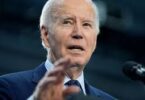Frank F. Islam
The World Health Organization has reported that approximately 50 percent of the new Covid-19 cases in the world are occurring in India. By May 1, there had been more than 19 million total cases and over 210,000 deaths in India since the Covid-19 pandemic began.
As this second wave of the coronavirus intensified, the daily case count went over 300,000 for ten consecutive days and has now exceeded 400,000 a day. This cataclysmic wave has pushed the Indian healthcare system to the brink of collapse.
The United States and many other countries have come forward to assist the Indian healthcare system by providing material for vaccines, therapeutics, rapid diagnostic test kits, ventilators, personal protective equipment, oxygen and various medicines. Pakistan and Pakistanis have spoken and reached out empathetically to India as well.
Prime Minister Imran Khan expressed his sympathy in a tweet on Saturday, April 24.
“I want to express our solidarity with the people of India as they battle a dangerous wave of COVID-19. Our prayers for a speedy recovery go to all those suffering from the pandemic in our neighborhood& the world. We must fight this global challenge confronting humanity together.”
Khan did not tweet in isolation. His tweet was joined by tens of thousands of tweets from other Pakistanis. Those tweets have come from journalists to showbiz stars, from political activists to social workers. They have come from Pakistanis of all types wishing to play some part in alleviating the pain of Indian fellowmen.
“PakistanStandsWithIndia” has become a top trending hashtag. News18 reports, “In a sense of solidarity, netizens in Pakistan have also reached out to their Indian counterparts offering prayers and good wishes for coming out of the crazy blow of the Covid-19 second wave”.
Pakistanis have offered more than words of concern. In a letter to Indian Prime Minister Narendra Modi, Faisal Edhi, son of Abdul Sattar Edhi, legendary humanist and philanthropist, proposed to provide the Edhi Foundation’s assistance to India. He said he was ready to lead a humanitarian effort with his medical technicians, 50 ambulances, drivers, and helpers in whichever city the Indian government would permit.
Faisal Edhi was offering what I call purposeful philanthropy.
As I have said in the past, an international interconnected philanthropic network (IIPN) dedicated to developing a collaborative and coordinated response to the pandemic globally should be an essential element of solving this problem. The IIPN’s purpose would be to develop strategies and approaches to address the root causes of this pandemic, avoid future pandemics, and help nations cope with the consequences of the pandemic going forward.
Last year I wrote that:
“The IIPN could combat this by developing the framework for connecting three dots to allow stakeholders to maximize their investments in critical pivot point areas – areas that can be leveraged and addressed most effectively to reverse the downward trajectory caused by the pandemic. Those three dots are: planning; revitalization models; and financial support.”
As this unprecedented pandemic persists much longer and with graver consequences than almost anyone predicted, an IIPN seems more relevant and necessary now than ever. An IIPN could produce a short-term Covic-19 recovery plan and a longer-term health care and economic system development plan.
Every nation needs these plans -no matter whether it is theUS or India whichhas already been stretched to the limit and beyond to just react daily to the pandemic. In this context, any purposeful philanthropic effort from the Pakistani side toward India should be appreciated – though it is up to the Indian authorities to see its importance and feasibility.
Last month, the world saw a glimmer of hope for peace between India and Pakistan. This hope was precipitated by reports that the UAE had helped to broker the recent India-Pakistan Kashmir border ceasefire and the outlines ofaroad map to peace between these two nuclear-armed south Asian neighbors.
The road map is the starting line and a frame of reference. And, it is a useful one for moving awayfrom the most recent intractability.
As I wrote in my article preceding this one, “If Pakistan and India initiate meaningful peace talks, this could be beneficial to the entire region. It could shift the dynamics from a focus on defense and the military to a focus on human interest and health concerns.”
This could be a pivotal moment – seeing tens of thousands of Pakistanis and Indians exchanging positive messages on social media forums – which the leadership of both countries could seize. It has softened the hearts and opened new avenues for a people to people exchange among citizens from various walks of life in both nations.
This moment could be built upon – given the necessary precautions and health safety from both sides –in the short term by promoting small collaborative acts between India and Pakistan. These collaborations could include: Granting permission for religious tourists to visit the Kartarpur Gurdwara. Convening Indian and Pakistani health professionals to discuss post-Covid health scenarios. Boosting the people to people ties by allowing the cricket teams of both countries to play against each other.
After that, there could be the engagement of the appropriate and duly designated representatives from both countries to advance discussions of peace between Pakistan and India.
Ultimately, the leaders of Pakistan and India will determine which course to follow. They will decide whether this is the time to focus on coming together to set a new agenda to address the health, social and economic concerns of these nations.
One might think that this is impossible. I do not share that pessimistic view.
It has been said that necessity is the stepmother of invention. This is a time of great necessity. It is the time to reinvent the relation between Pakistan and India. Pakistan’s reaching out its hand and heart to India could provide the basis for launching that reinvention process.
This is my cautiously optimistic perspective.
(Frank F. Islam is an Entrepreneur, Civic Leader, and Thought Leader based in Washington DC. The views expressed here are personal)






